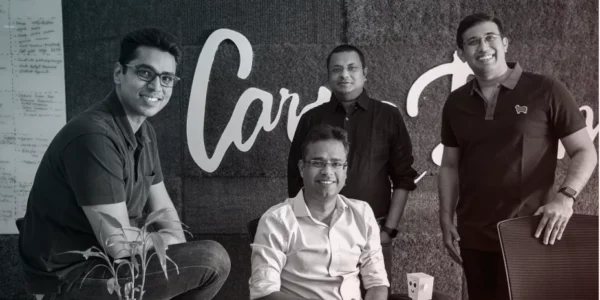Kai Zenner and Cornelia Kutterer have stated that to ensure the European approach of trustworthiness within artificial intelligence and managing the GPAI`s regulations for the future, it now all depends on some experts and the vice chairman.
The Artificial Intelligence Office is mostly expected to appoint a crucial group of peripheral individuals who might become the reason for execution of an important aspect of the European Union`s Artificial Intelligence Act, while the Chairman and Vice Chairman are directly responsible for managing the Code of Practices for the General Purpose AI Model (GPAI).
As of the context, the boost of generative AI and acceptance of widely used tech applications like Chat GPT has highly disrupted and also caused political exaggeration during its last stage of Artificial Intelligence Act trilogue negotiations.
Nations such as France, Germany, and Italy have shown their worry about the regulatory action that is going to take place on the foundational level of the artificial intelligence stack, which might hold back some of the European Union`s start-ups, such as Aleph Alpha or Mistral. Basically, France has changed its position numerous times before coming to this point of view.
As of Europe`s point of view, the European Parliament has taken a different stance where they are worried about the violations of fundamental rights and concentrated markets; they demand a complete legal structure to be set for the generative AI, which was registered as a GPAI model in its final legislation.
The given opposing perspectives suggest that the EU co-legislators have chosen a middle-ground and co-regulatory approach that will delineate the responsibilities of the GPAI model suppliers through complex codes and technical standards.
The robust government policy was introduced for the draughting of GPAI codes of practice, divided into different groups of four, as of June 30. The approach has provided numerous opportunities for the stakeholders to take part and create an influence in the final text, which also includes public specialists and the three plenary sessions. Basically, companies based on GPAI are still managing to play a prominent role in the process of code drafting by taking part in additional workshops. Sticks to the final codes are voluntary for these institutions, so it is more important to keep in mind.
Reflecting the code on the disinformation, it is now clear that the self-criteria of the vice chairman will be important to maintain the trustworthiness and sprite of the draughting process.
The individuals are appointed as they will make a major impact, while they will act as an important creator for the drafts and can lead to four working groups.
The ninth chair might take coordination status. Basically, a combined working process could balance the striving systematic risks, which ensures that the compulsion could be technically feasible and could lend a hand to the development of innovation.
The primary aim is to create a GPAI code that offers a practical interpretation of the recent progress. To get a premium quality, the Artificial Intelligence should assign vice chairs, which might be based on merit, who prioritise the working candidates who have top-notch technical analysis, sociotechnical or authorised in-tech expertise in GPAI models, and hand-on experience managing the committee at the European or international level.
The AI safety measure is such a field that is rapidly changing and emerging, as this field is based on the experiment basis and takes necessary actions as per the mistakes that have been made. That’s why the selection process for this field is much tougher.
Offices that are based on artificial intelligence are witnessing lots of problems, such as navigating a wide aspect of qualified backgrounds, the equilibrium of the multiple vested interests and upholding the European Union`s pledge to its own country, and gender diversity. Most of the top-notch experts in AI are outside of the EU. But it is important that the GPAI consider the EU as the first priority, where it is necessary to show the EU`s strong uphold and values to the chairs. The AI`s growing acceptance and the AI Act`s requirement have attracted numerous interest from multiple international-based experts for these respected positions.
The chairs are the leaders who have the capacity to shape the path of the co-regulatory process as it attempts to complex the socio-technical challenges and sensitive policies, which also include IP rights, CSAM, and a primary porch that defines the compulsion of the GPAI model. The expertise and the vision are the key performers to ensure the future of the GPAI regulations, and also the European approach of the dependability in the AI ecosystem will remain robust.
In summary, selecting or appointing vice chairs for the GPAI code process is important for the present.


























